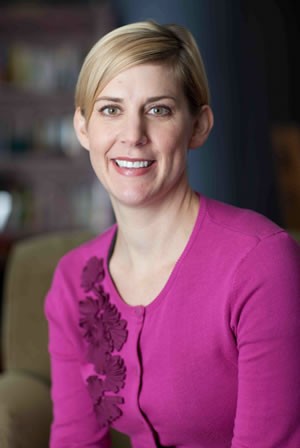April 16, 2012—Sometimes it’s difficult to distinguish the policy beliefs of one Portland liberal running for office from another, but when it comes to healthcare, it’s relatively easy to drawn lines in the sand between Sharon Meieran and Jennifer Williamson.
They’re competing to win the upcoming May 15 Democratic primary for House District 36, which includes parts of downtown and southwest Portland. Rep. Mary Nolan (D-Portland), who currently holds that seat, is running against Portland City Commissioner Amanda Fritz for Portland City Council.
Whoever wins the primary is likely to become the district's new legislator. There is one Republican running, but the district is a reliably safe Democratic seat.
 An emergency room doctor at Portland Adventist Health Center, Meieran was motivated to run for the House seat by “what [she] sees on the front lines everyday,” and is also president of the Oregon College of Emergency Physicians and a member of the Oregon Medical Association’s Legislative Committee.
An emergency room doctor at Portland Adventist Health Center, Meieran was motivated to run for the House seat by “what [she] sees on the front lines everyday,” and is also president of the Oregon College of Emergency Physicians and a member of the Oregon Medical Association’s Legislative Committee.
On the job, she’s seen people showing up in the emergency room with untreated mental and substance abuse issues, homelessness, and other problems that effect their health, and believes she lends “a unique perspective at a unique time,” given the transformation of Oregon’s healthcare system.
Williamson, on the other hand, wants to make certain that Oregon continues investing in programs and services that offer opportunities. She’s worked as a lobbyist for Portland State University and more recently for Komen Oregon.
 A fourth generation Oregonian, she and her five siblings were the first in their family to attend college, and attributes that, in part, to financial aid from the state. “The state invested in us,” she said. “Kids and families don’t have that opportunity anymore.
A fourth generation Oregonian, she and her five siblings were the first in their family to attend college, and attributes that, in part, to financial aid from the state. “The state invested in us,” she said. “Kids and families don’t have that opportunity anymore.
Where Meieran and Williamson differ most starkly is whether a single payer system—which would provide universal healthcare to every Oregonian -- could be successfully implemented.
“Single payer makes the most sense,” said Williamson because it assures that everyone will have health coverage and save the state money. Creating a single payer system would also generate healthcare jobs and minimize labor disputes.
Williamson’s heard from teachers who’ve foregone pay increases over the last three years because of rising healthcare costs, yet another reason, she said, for a single payer system.
If elected, Williamson’s eager to work with Rep. Michael Dembrow (D-Portland) to introduce single payer legislation, and is also planning a trip to Vermont to learn how that state has been able to create a single payer system.
Nevertheless, she realizes that she’ll face a tough battle winning over her colleagues. “[The healthcare industry] is a hard industry to come up against. People aren’t ready to take it on.”
Meieran said she also supports a single payer system calling it “the ideal type” of healthcare system. She views CCO development as an important first step in the direction of creating a single payer health system, not only because CCOs will widen access to preventive care and integrate mental healthcare, but also because a CCO's global budget is similar to how a single payer system work on the state-wide level.
But Meieran doesn’t believe it’s possible to start a single payer system in Oregon in the short-term. “It’s not practical or feasible…from an economic standpoint, provider standpoint, and every aspects of the delivery system," she said.
The candidates also differed slightly on the Legislature’s role in coordinated care organizations, which will begin integrating physical and mental healthcare for 650,000 people on the Oregon Health Plan in August and could become the delivery system for the state’s school teachers and public employees.
“This is the beginning of the process,” said Meieran, who doesn’t believe the Legislature should monitor CCO development, but believes it’s essential to provide preventive services and fund school-based centers.
From Williamson’s perspective, CCOs “have to be held accountable. This is the system we’re saying we need in the state.”
She thinks the Legislature should hold hearings and either change the rules or draft new legislation to make certain CCOs live up to their expectations while emphasizing prevention and integrating mental health.
“I’m really focused on budget issues,” she said. “It goes back to the general proposition that when we invest dollars, we do it in the smartest way possible.”
The myriad of problems currently faced by the healthcare system is “about healthcare finance,” she said. “It’s a budget issue, and figuring out the best investments for the best outcomes.”
Merieran Campaign Supported by Healthcare Industry
It’s obvious from the campaign contributions that Meieran is favored by the healthcare industry. According to ORESTAR, she’s received contributions from dozens of healthcare organizations, including Douglas County Independent Practice Association (DCIPA, which gave $1,500) and Doctors for Healthy Communities ($1,500).
The political action committees of the Oregon Medical Association, Oregon Healthcare Association and Oregon Hospital Association, also each gave her $2,500. Other notable contributors include Regence Oregon and Chuck Hofmann, whose term on the Oregon Health Policy Board recently ended.
Williamson, on the other hand, has a more diverse list of contributors, including the Oregon Business Association, Oregon Nurses PAC (which gave $5,000), Oregon AFSCME, the Oregon Criminal Defense Lawyers Association, Planned Parenthood and numerous individual lawyers (Williamson has a law degree from the University of Oregon). Her largest contribution is a whopping $15,000 from Phil Knight, the founder and owner of Nike.
Meieran said her contributions won’t affect her judgment or policy decisions as a legislator. Williamson disagrees. “That idea that it doesn’t matter is wrong,” she said.